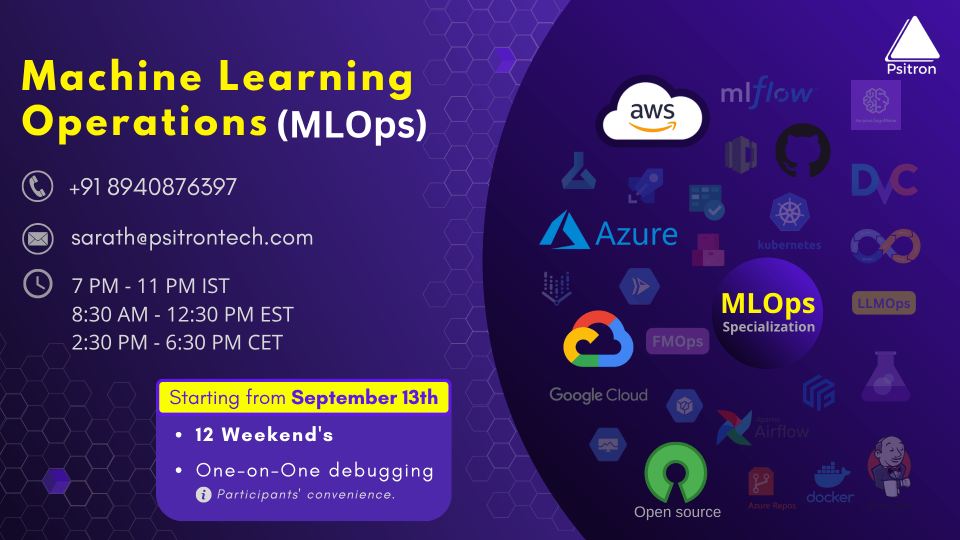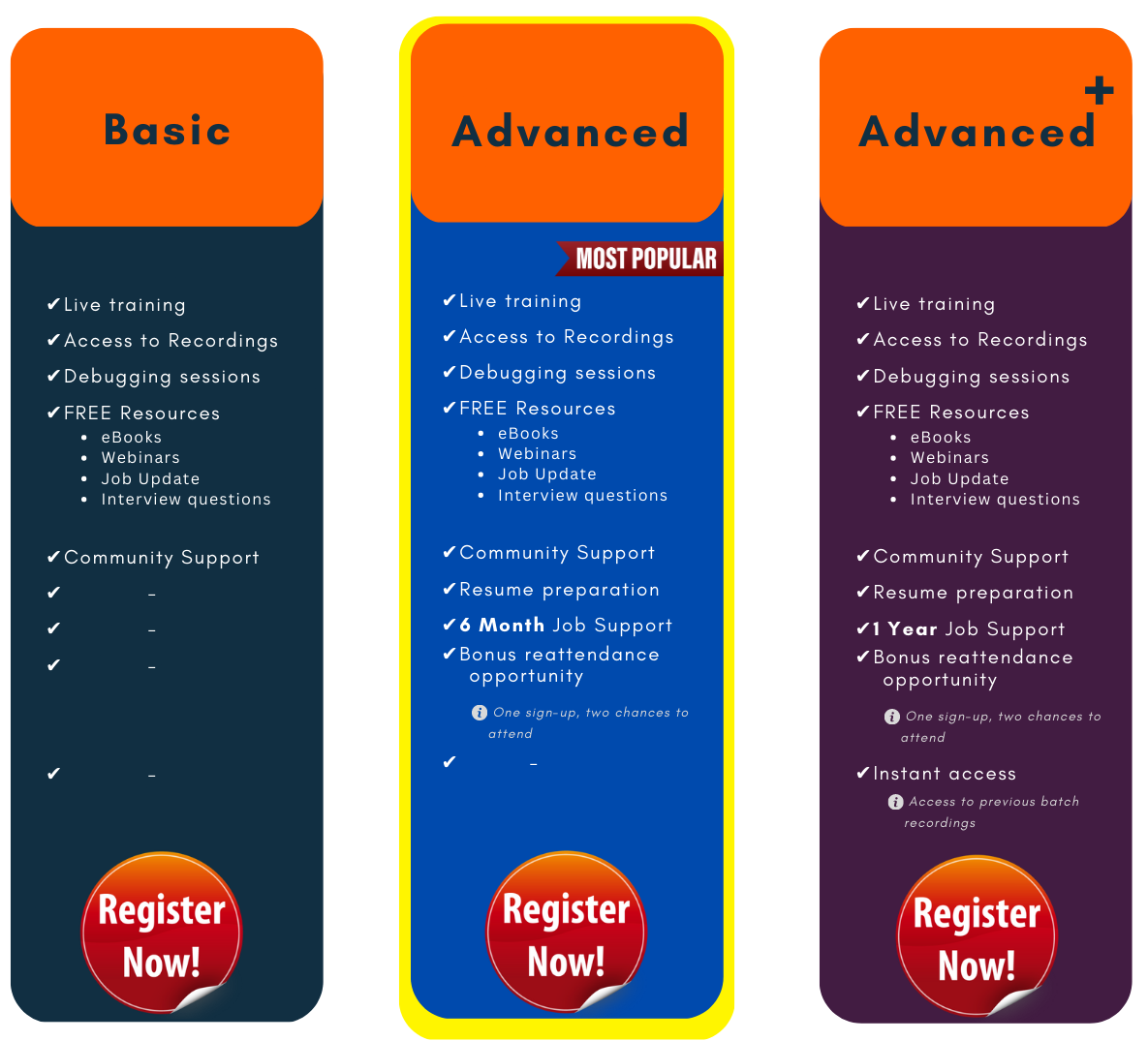There are no items in your cart
Add More
Add More
| Item Details | Price | ||
|---|---|---|---|
Key Highlights
Nisheeth Jaiswal - Participants - MLOps
Dipali Matkar - MLOps Engineer Must Watch 👇
Rahul Patil - Participants - MLOps
Fathima Hafeez - Participants - MLOps
Get trained by top industry experts
Get real-world experience through Projects
Improve your professional network and learn from peers through our innovative Peer WhatsApp & community groups.
Speak to Subject Matter Experts anytime and clarify your queries instantly.
Hands-on exercises, project work, quizzes, and capstone projects




